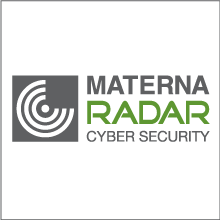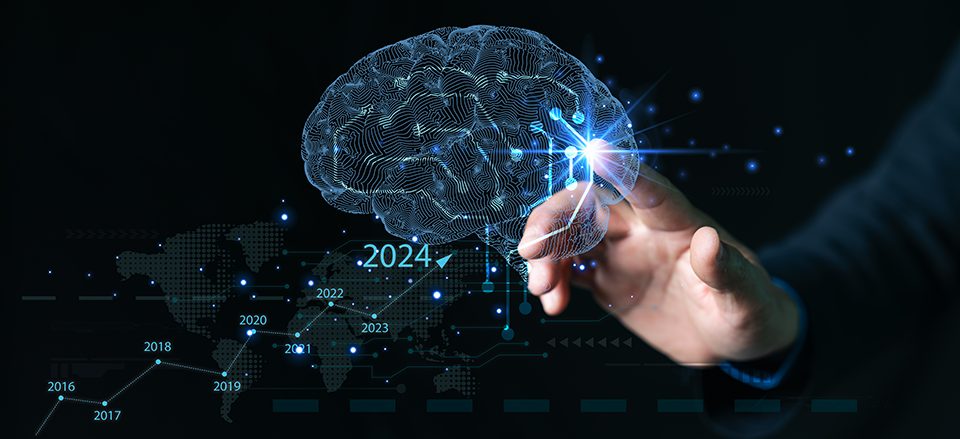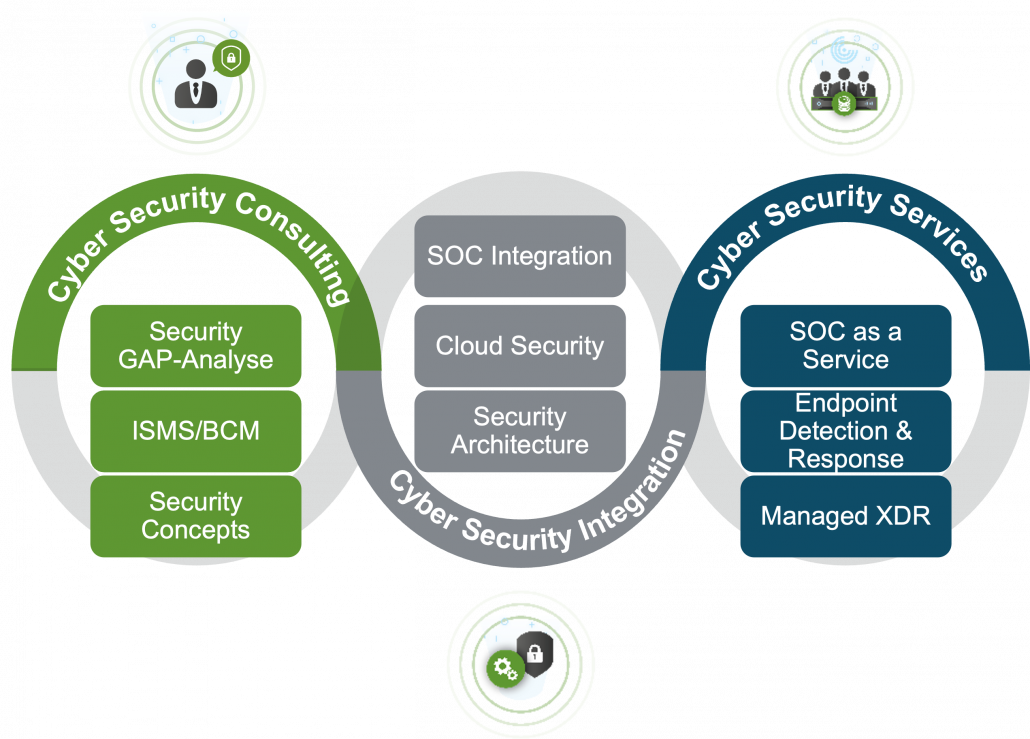The new year comes with new developments in the cyber security industry, that offer opportunities for greater cyber resilience. Our cyber security experts Philipp Kleinmanns (Senior Vice President Cyber Security, Materna) and Dr. Christian Polster (Managing Director of Materna Radar Cyber Security) report on what companies and authorities can expect in the future and how they best protect their organisations.
In 2024, the race between security specialists and cyber criminals will continue to intensify. The uncertain geopolitical situation will contribute to an increase in attacks. In fact, any company or public body with state or federal jurisdiction is affected. The discrepancy between the high level of professionalism of the attackers and the low resistance of many companies and authorities is problematic. High professionals, including states or government-related institutions, are at the cutting edge of technology.
The use of artificial intelligence (AI) will take the quality of attacks to a new level: phishing attacks will be further professionalized in the future through the use of AI. The texts generated by AI are almost error-free and deceptively genuine, making it increasingly difficult to distinguish phishing emails from genuine emails. In addition, AI tools are increasingly able to provide code or software so that hacker groups without their own software can also use them, or they can access ready-made attack frameworks available on the dark web. The latter extends the circle of cyber criminals to people with little programming knowledge. In addition, AI systems can quickly adapt and improve attacking methods or answer questions to overcome hurdles. As a result, there will be more cyber criminals using better methods to carry out numerous and effective cyber attacks.
The right response to every attack
On the other hand, IT infrastructures in many areas are necessarily designed for information and data exchange in many directions – think of the cloud, software-as-a-service, home office and connections to suppliers. In this context, a closer look at supply chains will become increasingly important. Weak points in the supply chain harbor major risks of attack. As there are many dependencies in a chain, an attack damages several points at once and makes the processed data vulnerable. Authorities and companies should therefore definitely consider their supply chains when it comes to cyber security. The NIS2 Directive (see also: NIS2 – Stronger cyber security for the EU) obliges affected companies to take comprehensive risk management measures – also to secure the supply chain, including security-related aspects of the relationships between the individual facilities.
Security is a cross-cutting issue in many IT areas. The area to be protected is becoming increasingly large, and the necessary protective measures are almost impossible for companies and authorities to manage on their own in view of the rapidly increasing threats. To stay ahead in this race, the cyber security industry must provide comprehensive security concepts and differentiated, behavior-oriented security measures. Here too, AI and machine learning are becoming key factors in distinguishing normal user and system behavior from anomalies and overcoming sophisticated threats. Proactive and intelligent systems are crucial to identify and mitigate threats.
External support
Launching the Materna Radar Cyber Security brand, Materna Group has created a separate division where all security services are bundled and delivered from a single source. The offering includes cyber security consulting as well as the integration of individual security solutions and SOC services, which are operated in the cloud, on-premise or hybrid, depending on customer requirements. The portfolio is being consistently developed in order to be able to continue to offer solutions for complete processes from end to end in the face of increasingly complex structures.
It will be essential to think ahead in the area of cyber security, continuously expand internal knowledge and keep up with the latest developments. Only those who embed their organization in an ecosystem with external support and thus proactively improve their cyber security products, experts and processes will survive the race against attackers.



